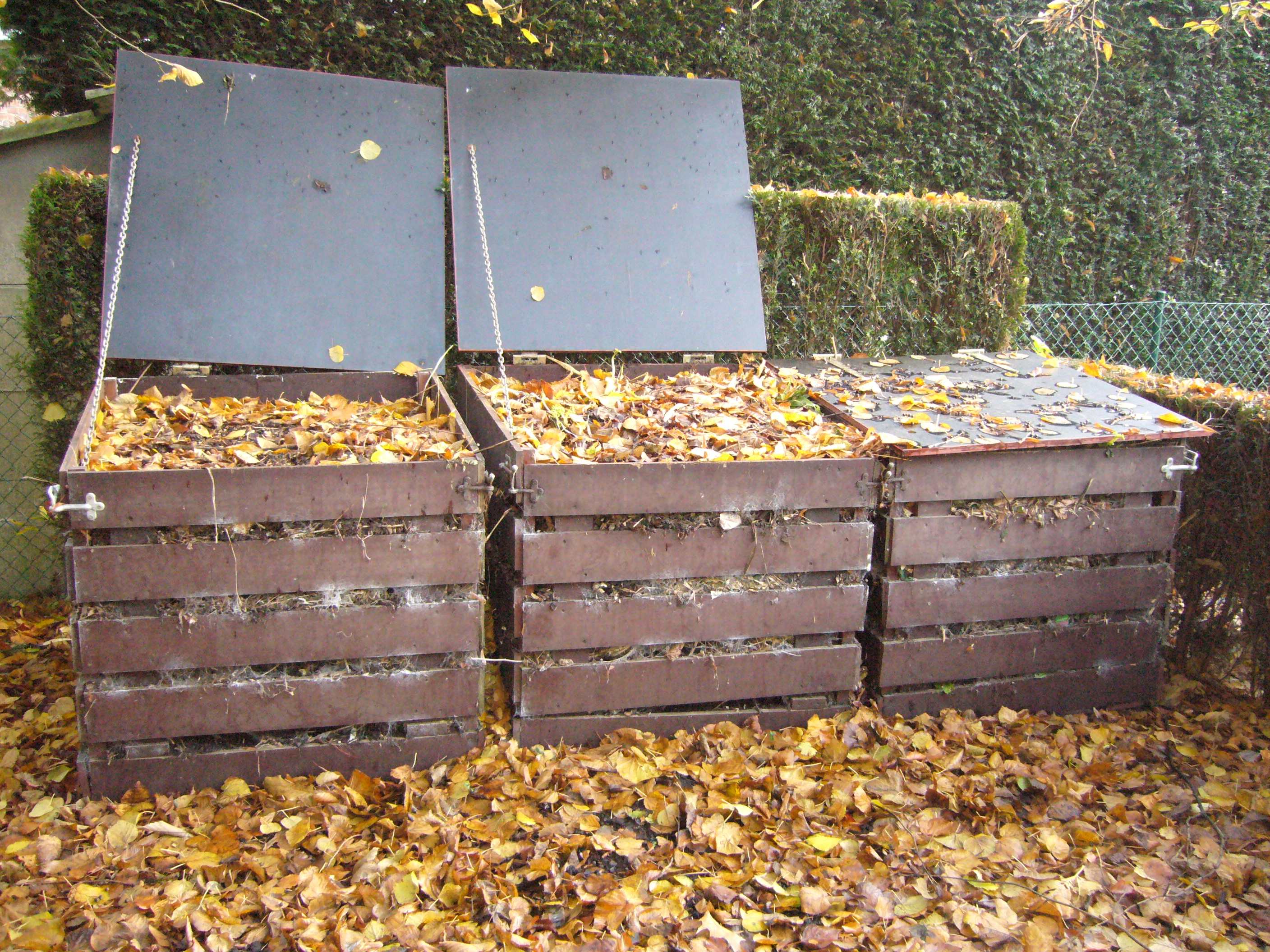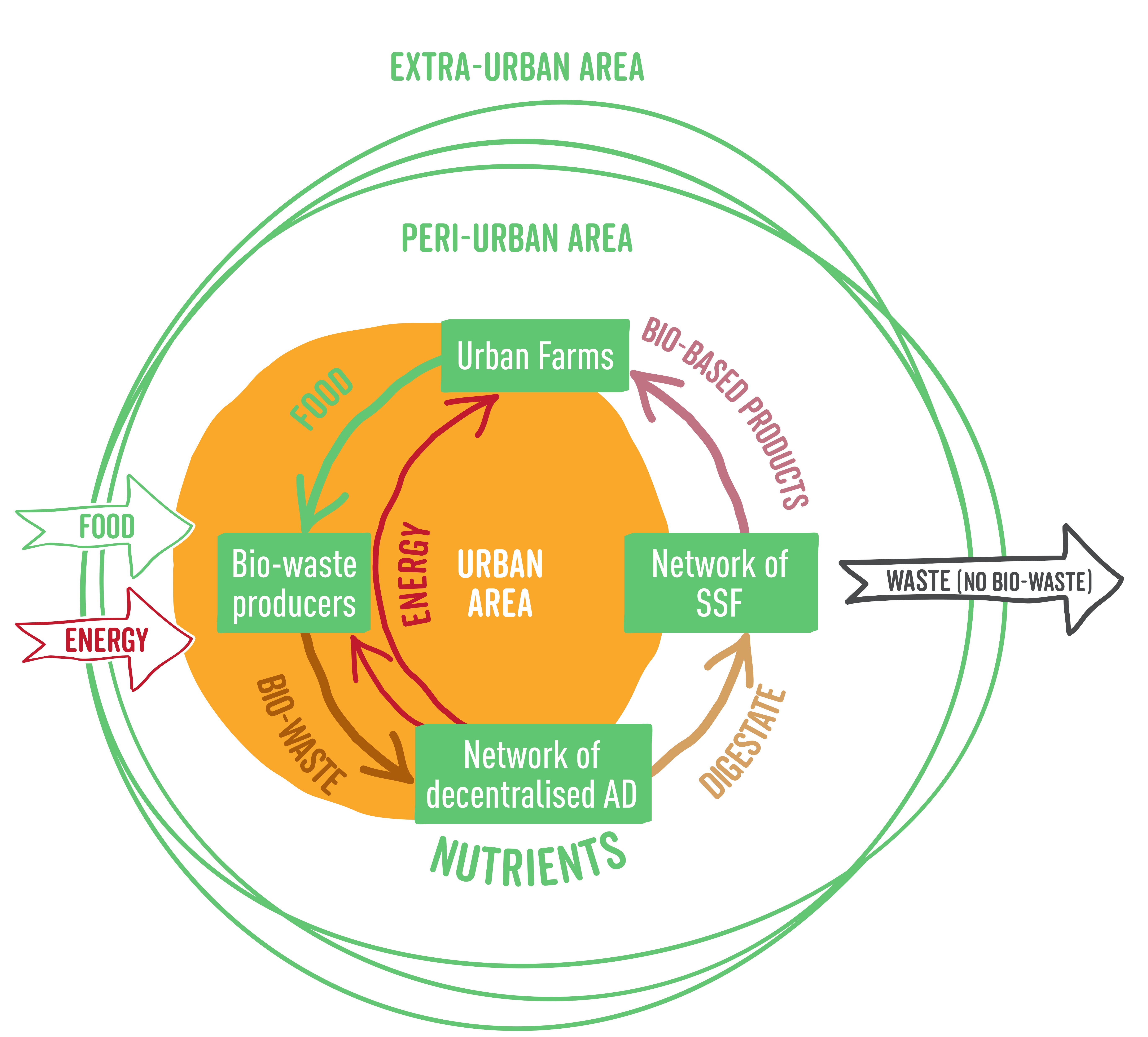THE SOLUTION
Decentralised bio-waste management
Centralised approaches present various advantages when it comes to bio-waste management and allows to treat waste remotely from the population. However, it also requires significant investments into technological solutions, as well as important collection and transport systems leading to economic, social and environmental impacts such as noise, traffic and fuel consumption. On the other hand, decentralised management of urban bio-waste presents advantages: lower collection needs, more flexible solution, less important investment costs. When considering existing community composting experiences, other advantages can be observed: higher quality of the sorted bio-waste, more awareness and involvement from the citizens…

Therefore, decentralised bio-waste management schemes represent a relevant alternative to traditional centralised systems. Such systems are not widely implemented in Europe. Several eco-district projects have been proposed, such as the KREIS project in Hamburg, Germany, but they largely rely on decentralised wastewater treatment and the concept has not been adapted for pre-existing districts. For existing buildings, restaurants and caterers, there is a lack of robust and simple micro-scale processes ; the common systems are adapted for more than 200 tonnes/year.
Closing the organic loop
Social, economic and environmental contexts call for the development of systems based on circular economy, including management of bio-waste, such as local biorefineries and compost producers, in parallel with the development of local food consumption patterns. DECISIVE proposes to develop and demonstrate a decentralised management scheme for innovative valorization of urban bio-waste through micro-scale anaerobic digestion (AD) and solid state fermentation (SSF) within the urban and peri-urban areas. The originality of DECISIVE will be to change the urban metabolism for organic and energy flows into a closed loop through technological and nontechnological solutions for the creation of a regenerative circular economy based on bio-waste management. By developing such systems, it also aims at boosting the citizens’ involvements and local employment.
Moreover DECISIVE will assess the impacts of these changes on waste prevention and high quality source sorting of other valuable materials present in municipal waste stream. It will also focus on creating synergies with peri-urban & urban farms through the use of the obtained bioproducts to enhance local food production.

